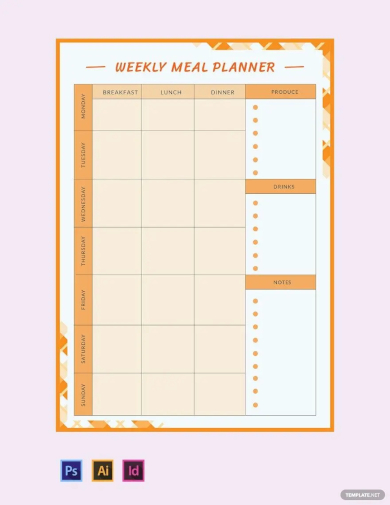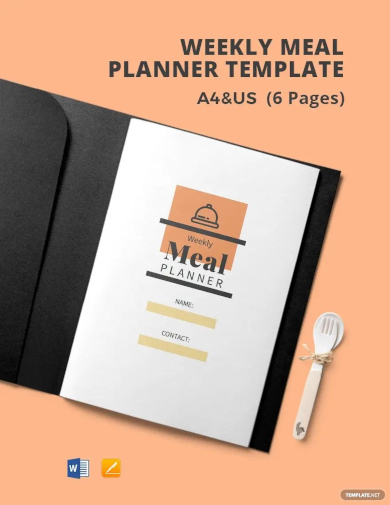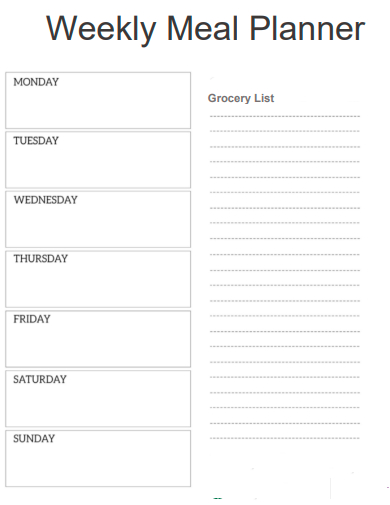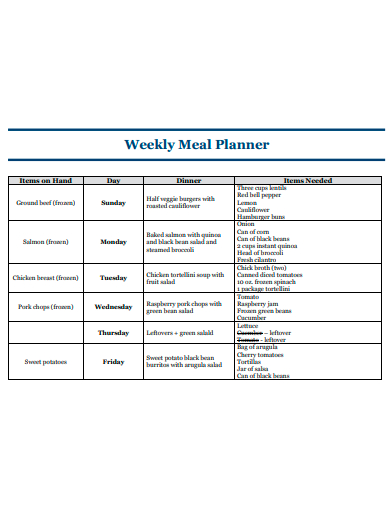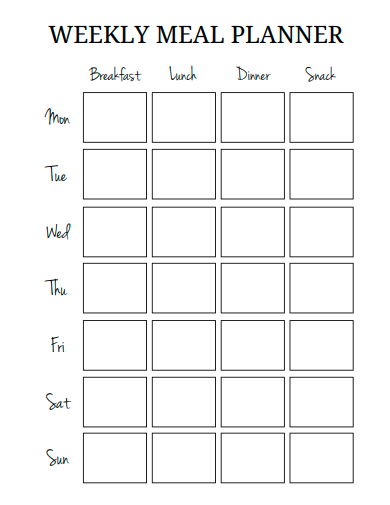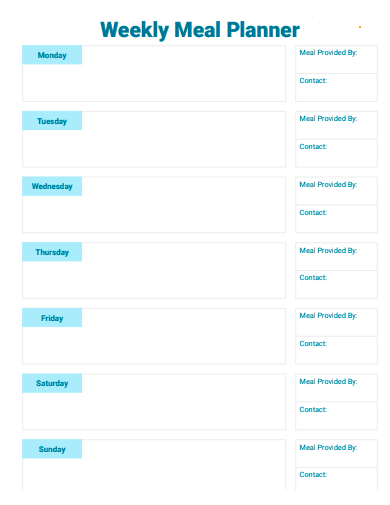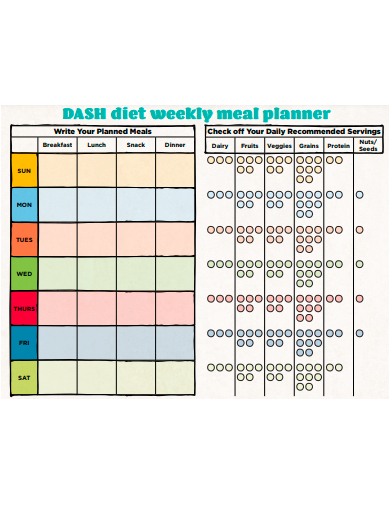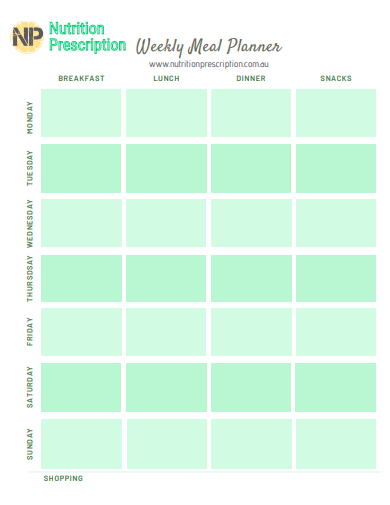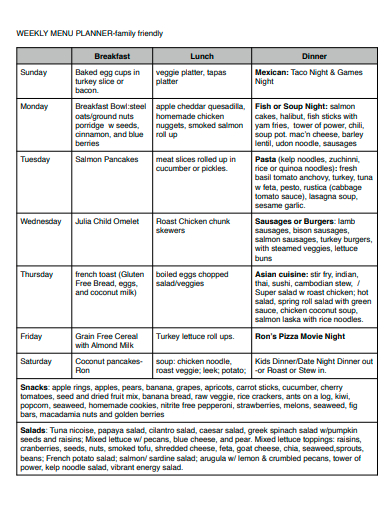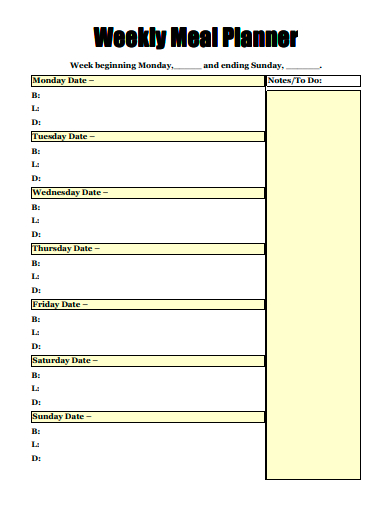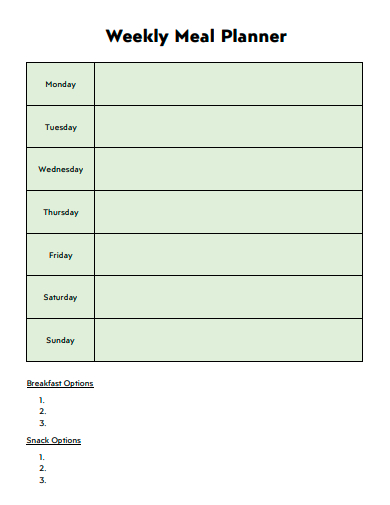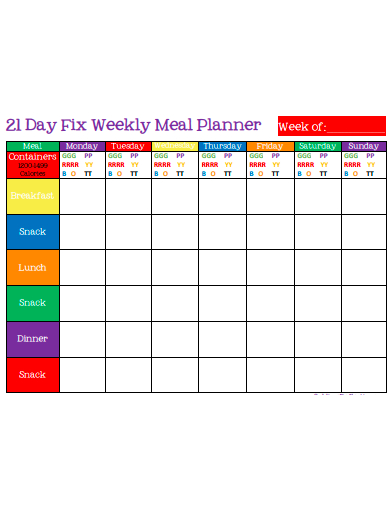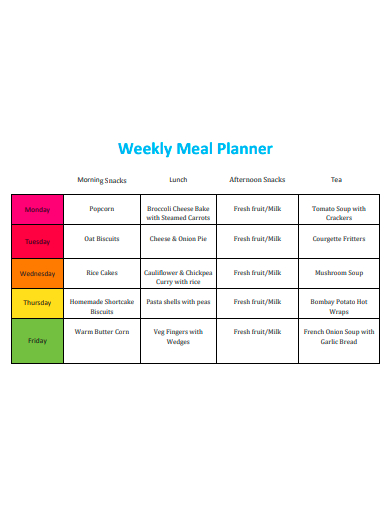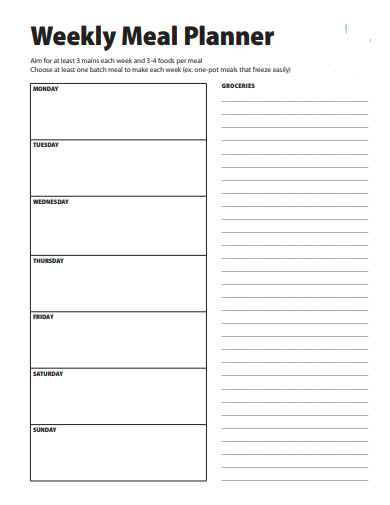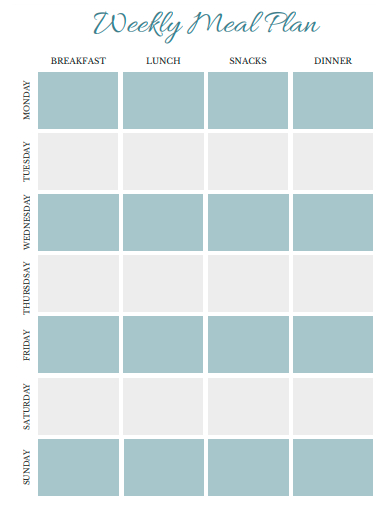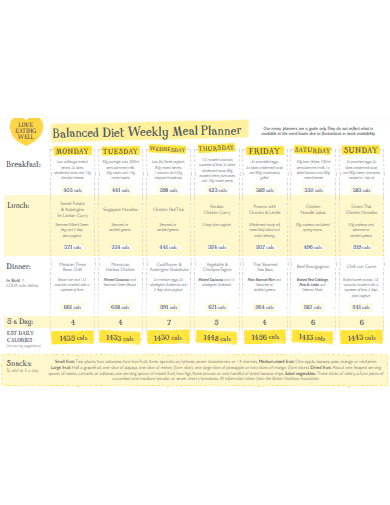It can be challenging to maintain a healthy and well-balanced diet. Our busy daily schedules often lead us to make hasty food planner, resulting in unhealthy eating habits. However, one effective way to overcome this challenge is by utilizing a weekly meal planner. A weekly meal planner is a practical tool that can help individuals and families create improvement plan for their meals in advance, providing numerous benefits for both physical and mental well-being.
15+ Weekly Meal Planner Samples
1. Weekly Meal Planner Template
2. Simple Weekly Meal Planner Template
3. Formal Weekly Meal Planner Template
4. Basic Weekly Meal Planner Template
5. Weekly Meal Planner Example
6. Printable Weekly Meal Planner Template
7. Diet Weekly Meal Planner Template
8. Nutrition Prescription Weekly Meal Planner Template
9. Weekly Meal Menu Planner Template
10. Weekly Meal Planner Format
11. Draft Weekly Meal Planner Template
12. 21 Day Fix Weekly Meal Planner Template
13. Sample Weekly Meal Planner Template
14. Weekly Meal Planner in PDF
15. Draft Weekly Meal Plan Template
16. Balanced Diet Weekly Meal Planner Template
What is Weekly Meal Planner?
A weekly meal planner is a tool or system documentation used to organize and plan meals for an entire week in advance. It involves creating a schedule forms or flowchart sample that outlines the meals and snacks for each day of the week, including breakfast, lunch, dinner, and any additional snacks or beverages. The planner typically includes details such as specific recipes or meal ideas, a list of ingredients needed, and the estimated time required for meal preparation.
How To Make Weekly Meal Planner?
The goal of a weekly meal planner is to streamline meal preparation, save time and money, promote healthier eating habits, and contribute to overall well-being. Creating a weekly meal planner is a straightforward process that involves a few simple steps. Here’s a guide on how to make a weekly meal planner:
Step 1- Assess Your Needs and Goals
Before starting, consider your dietary needs, preferences, and any specific health goals you have in mind. Take into account the number of meals you’ll be planning for each day (breakfast, lunch, dinner, and snacks) and the number of people you’re cooking for. Understanding your needs will help you create a meal plan that suits your lifestyle and supports your goals.
Step 2- Choose a Template or Format
Decide on the format for your meal planner. You can use a physical planner, a printable template, or an electronic spreadsheet or app. Select a layout that suits your style and preferences. Templates are widely available online, or you can create a simple table or grid format using a word processor or spreadsheet software.
Step 3- Plan Your Meals
Start by designating specific days of the week in your meal planner. Then, begin filling in the meals for each day. Consider a balance of proteins, carbohydrates, fruits, vegetables, and healthy fats. Incorporate variety to keep your meals interesting and enjoyable. Take note of any dietary restrictions or allergies and plan meals accordingly.
Step 4- Consider Batch Cooking and Leftovers
To save time and reduce waste, consider incorporating batch cooking and leftovers into your meal plan. Plan meals that can be prepared in larger quantities, allowing you to enjoy leftovers for lunch or dinner on subsequent days. This approach can simplify meal preparation and make the most of your ingredients.
How far in advance should I plan my meals?
Ideally, you should plan your meals for the upcoming week. Planning a week in advance allows you to create a comprehensive grocery shopping list and ensures that you have all the necessary ingredients on hand. However, you can adjust the timeframe based on your preferences and monthly schedule. Some people prefer planning meals every few days, while others plan for two weeks at a time.
Should I plan all meals, including snacks and beverages?
It’s up to you and your specific dietary needs. Planning snacks and beverages can be beneficial to ensure that you have healthy options readily available and avoid impulse snacking. However, if you prefer spontaneity in your snacks or if you have a simple routine for beverages, you may choose to leave them out of your meal planner.
Can I make changes to my meal plan during the week?
Yes, your meal plan is meant to serve as a guide, and you can make changes based on your preferences or circumstances. Life happens, and you may need to swap meals, adjust serving sizes, or accommodate unexpected events. The purpose of a meal plan is to provide structure and organization, but it should still be adaptable to your needs.
Utilizing a weekly meal planner offers numerous advantages that can contribute to a healthier lifestyle. It helps individuals save time and money, make healthier food choices, achieve a balanced diet, reduce stress, and improve mental well-being. By incorporating a meal planner into our routine, we can take control of our eating habits, promote overall well-being, and foster positive relationships within our families. So, let us embrace the benefits of a weekly meal planner and embark on a journey toward a healthier and happier life.
Related Posts
FREE 10+ Course Planner Samples in PDF
FREE 8+ Calendar Planner Samples in PDF
FREE 10+ Cute Workout Planner Samples in PDF | MS Word | Apple Pages
FREE 10+ Financial Planner Samples in PDF | MS Word | Apple Pages
FREE 10+ Digital Planner Samples in PDF | Apple Pages | MS Word
FREE 7+ Year Life Plan Samples in PDF
FREE 6+ 7 Day Weekly Planner Samples in PDF
FREE 50+ Project Planner Samples in PDF | MS Word
FREE 50+ Planner Samples in PDF | MS Word
FREE 10+ Menu Planner Samples in PDF
FREE 10+ Training Planner Samples in PDF
FREE 6+ Bill Planner Samples in PDF
FREE 8+ Birthday Planner Samples in PDF
FREE 10+ Yearly Planner Samples in PDF | MS Word | Apple Pages
FREE 3+ Covid Birth Plan Samples in PDF
